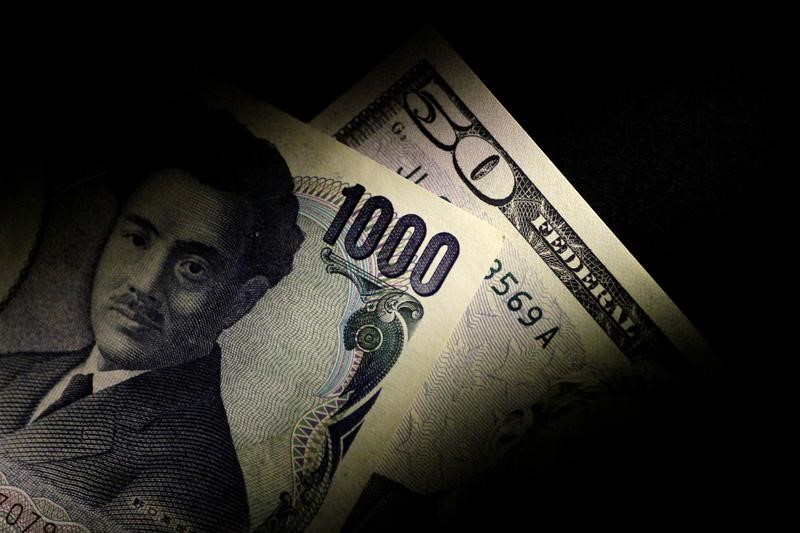By Peter Nurse
Investing.com - The U.S. dollar edged lower in early European trade Wednesday, with the focus mainly on the falling Japanese yen after the Bank of Japan maintained its accommodative stance, bucking expectations for a hawkish policy shift.
At 03:05 ET (08:05 GMT), the Dollar Index, which tracks the greenback against a basket of six other currencies, traded 0.1% lower to 102.005, just above the seven-month low of 101.77 seen earlier in the week.
However, the day's spotlight is on the Japanese yen, with USD/JPY soaring 1.6% to 130.19 after the Bank of Japan maintained its short-term policy interest rate at negative 0.1%, and kept its long-term interest rate at 0%, as widely expected.
The BOJ also said it will maintain the range of fluctuation in 10-year bond yields at between 0.5% and negative 0.5%, confounding expectations for a further adjustment in the rate, after the central bank unexpectedly widened the range in December.
The yen has rallied 14% in the past three months on expectations that the Bank of Japan will eventually move away from its super-easy stimulus policy, especially as inflation starts to rise significantly.
Today's decision has reversed some of those gains, but most analysts think another adjustment to its yield curve control policy is just a matter of time and may come in April when there is a scheduled change of leadership at the central bank.
Expectations of further appreciation in the yen in January were the highest in 16 years, according to a survey of global fund managers by Bank of America Securities, released on Tuesday.
Elsewhere, GBP/USD rose 0.3% to 1.2321 after data released earlier Wednesday showed U.K. inflation stayed stuck at over 10% in December, pointing to more interest rate hikes ahead from the Bank of England.
The Office for National Statistics said the consumer price index rose 0.4% on the month, bringing the year-on-year inflation rate down to 10.5% from 10.7%, in line with economists' expectations.
EUR/USD rose 0.5% to 1.0838, with the euro boosted after German Chancellor Olaf Scholz said at the World Economic Forum in Davos that he was convinced Europe's largest economy would not fall into a recession.
The final release of the December Eurozone CPI number is due later in the session and is expected to be confirmed at an annual 9.2% growth, a sharp drop from 10.1% the prior month.
AUD/USD rose 0.5% to 0.7018, while USD/CNY traded largely unchanged at 6.7744, with the yuan coming off a near five-month high after the weak Chinese growth data earlier in the week.
